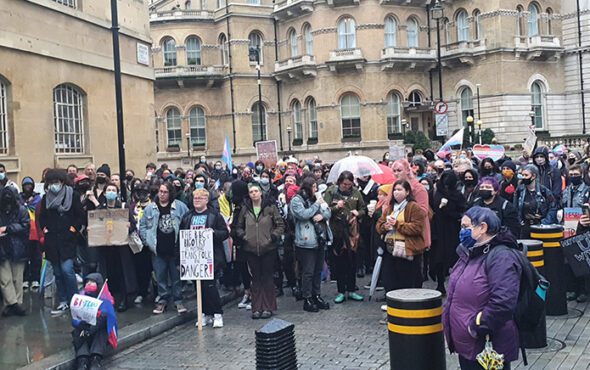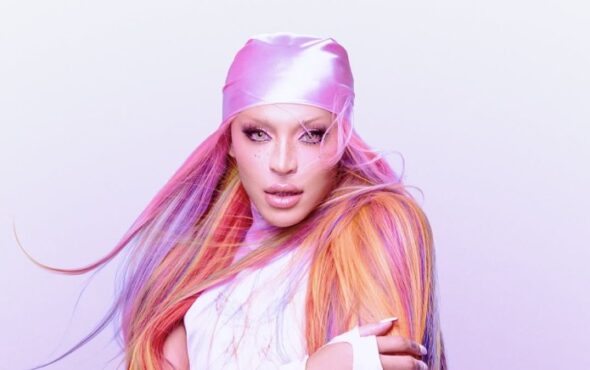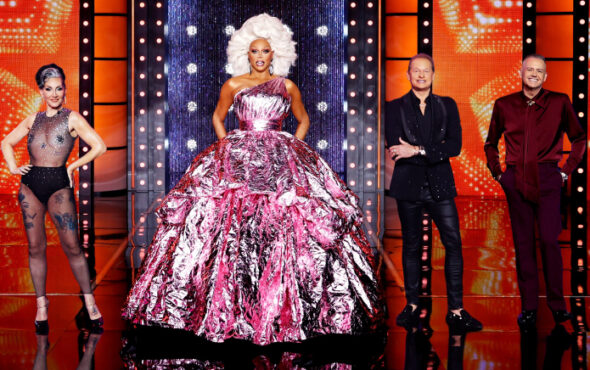
Protestors took to the streets outside Broadcasting House in protest of the BBC’s “problematic coverage of marginalised groups”.
In a demonstration on the afternoon of 8 January, hundreds showed up to object to how the BBC has depicted transgender and other minority communities in recent times.
It marks at least the fourth protest in the last three months after the outlet’s publication of Caroline Lowbridge’s infamous article about lesbian women allegedly “being pressured into sex by some trans women.”
It has since been revealed that Lily Cade, a lesbian porn star interviewed for and featured prominently the story, had been calling for trans women to be “lynched” – something that the author failed to mention when the piece was published.
The BBC opted to erase Cade’s contribution from the story on 4 November, adding a statement to the end of it confirming the move and acknowledging that “an admission of inappropriate behaviour by the same contributor should have been included in the original article.”
GAY TIMES is still awaiting comment from the broadcaster on Cade’s remarks and whether or not it was aware of her extremist views and the sexual assault allegations against her prior to the publication of Lowbridge’s article.
However, in a previous statement sent to us in response to Bimini Bon-Boulash criticising the BBC for “pushing an anti-trans agenda,” it said that the piece “went through our rigorous editorial processes.”
“It is important that journalism looks at issues – even where there are strongly held positions,” the statement continued. “The BBC is here to ensure debate and to make sure a wide a range of voices are heard.”
Felix F Fern, one of the protest’s organisers, said that BBC is “yet to take accountability or apologise for this outright dangerous article,” despite more than 20,000 people signing a letter calling for it to do so in late October.
“This is just the latest significant example of a continuing downward spiral of problematic coverage of marginalised groups by the BBC, which has in recent years turned the spotlight on the trans community,” Fern said in a statement on behalf of Trans Activism UK. “In doing so, they are little better than the rest of the mainstream UK media.”
Another successful protest! @TransActivismUK Thank you everyone for turning up, our speakers did amazingly and our volunteer stewards and first aiders thank you for keeping everyone safe! @BBC I hope you listened and learned! #bbcbigotry #BBCScandal #TransRightsProtest pic.twitter.com/wdUCfP71JL
— Shaira – Stop Colonial Violence (@ShairaBambi) January 8, 2022
Pictures from the demonstration show members of the LGBTQ+ community and its allies standing peacefully outside the BBC’s London headquarters near Oxford Circus.
Many held trans Pride flags, with others holding up placards with messages written on them.
“The BBC’s bigotry is putting trans folk in danger,” one read.
Another said: “Transphobia is not unbiased.”
Laura Kate Dale, who also helped organise the event, explained that the “BBC’s content will be under close scrutiny” going forward.
Dale continued: “We will continue to campaign for people to raise complaints over problematic behaviour, and escalate them to Ofcom.
“We will continue to engage with the BBC and we will not stop until improvements are seen and justice has been achieved.”
Josh Parry, the BBC’s newly appointed Senior Journalist (LGBT+ Identity), is facing increasing scrutiny online for not covering the protest or mentioning it on his Twitter account.
Responding to one of Parry’s tweets about Wordle, Fern called on him to cover the demonstration.
They wrote: “Maybe instead of tweeting Wordle and misogynistic comments about Emma Watson, you could push for coverage of that protest that you palmed off onto the on-day stories team, instead of putting priority on the fact that it comes under your remit as LGBTQ+ correspondence?”
In response to GAY TIMES requesting comment from both the BBC and Parry in relation to this story, a spokesperson for the broadcaster said: “We don’t cover all demonstrations or marches as a matter of course, and didn’t cover this one on editorial merit.”
Maybe instead of tweeting Wordle and misogynistic comments about Emma Watson, you could push for coverage of that protest that you palmed off onto the on-day stories team, instead of putting priority on the fact that it comes under your remit as LGBTQ+ correspondence?
— Felix F Fern – Writing 'Steel & Embers' (@Felix_F_Fern) January 9, 2022



